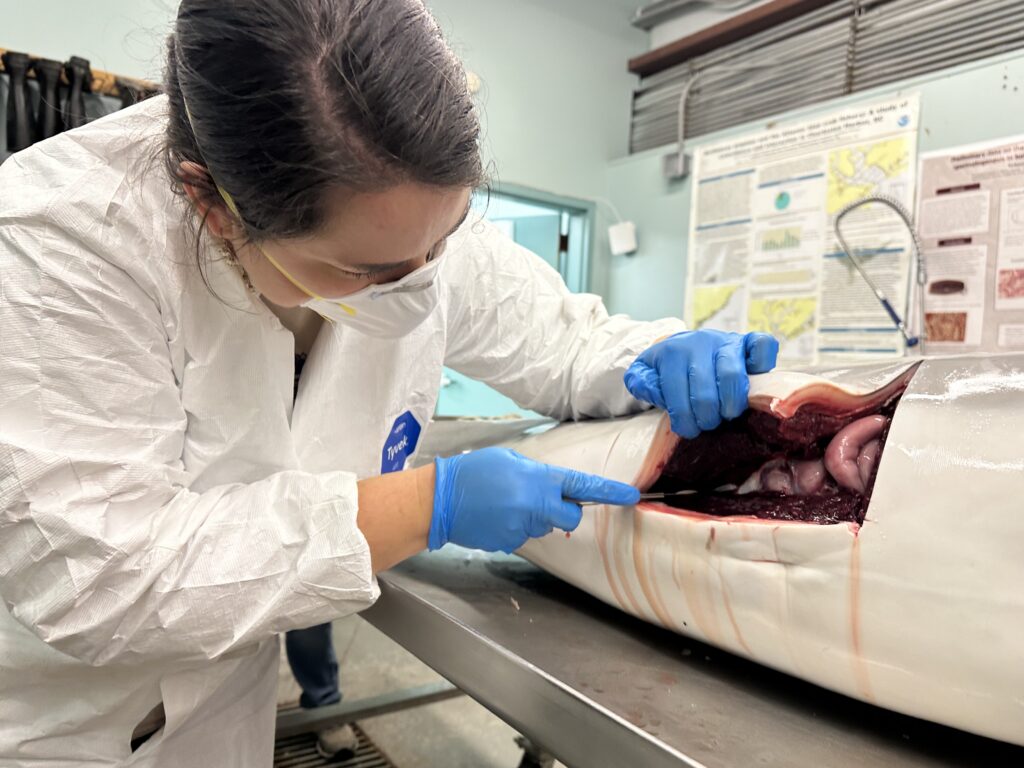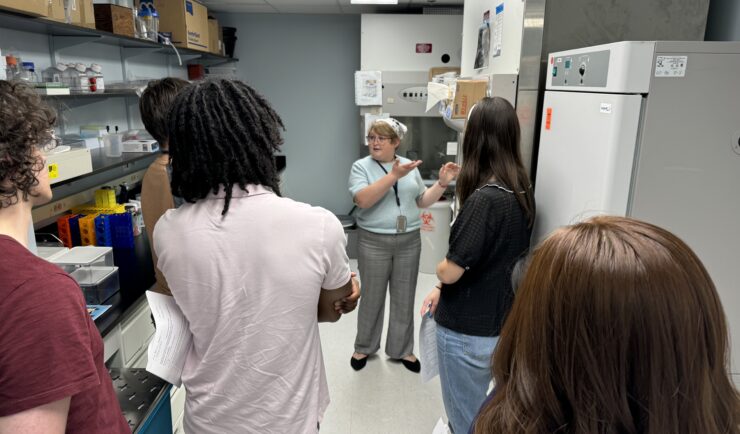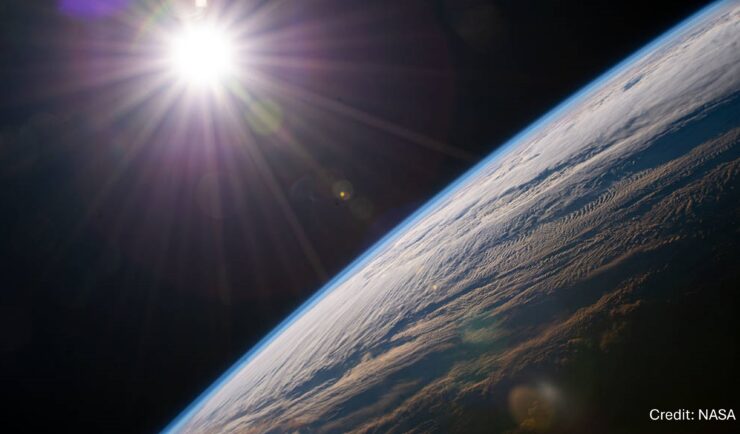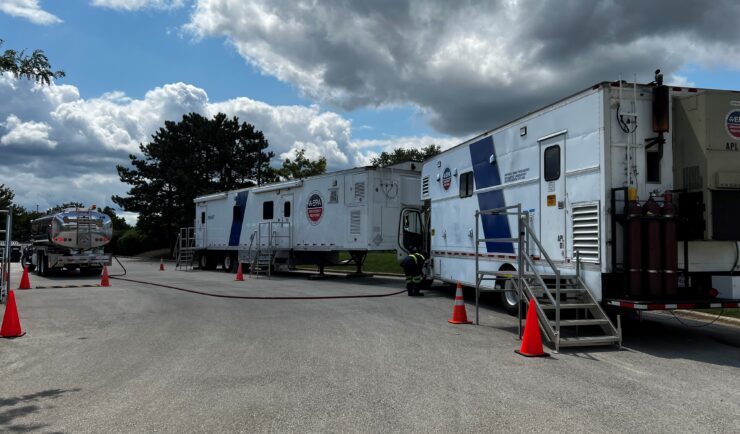
CSS employee owner and Marine Mammal Microplastic Specialist supporting NOAA’s National Centers for Coastal Ocean Science assists the South Carolina Marine Mammal Stranding Network in responding to dead marine mammals when they strand on beaches or estuaries throughout South Carolina. This is work is critical for human and environmental health because it provides invaluable samples which allow scientists to
- better understand ecosystem conditions since marine mammals are important indicators of the health of their environment,
- gain insight to the health of the marine mammal community,
- assume potential impacts for humans living in the coastal zone.
In addition, removing marine mammal carcasses from public spaces helps avoid potential disease transfer to humans.
The Lowcountry Marine Mammal Network (LMMN) is the current NOAA Fisheries permit holder—a permit required by the Marine Mammals Protection and Endangered Species Act for research including collecting samples for biopsies. The organization currently has only one staff member dedicated to these responses. Since responding to stranded, deceased marine mammals is not safe or possible to do alone, CSS staff supporting NCCOS frequently assist with field responses, conducting necropsies (i.e. animal autopsies), and sample collection.


Following sample collection, the CSS Marine Mammal Microplastic Specialist is specifically responsible for the gastrointestinal assessment. Responsibilities for this task include dissecting and analyzing the stomach and entire intestinal tracts of stranded marine mammals. This assessment helps provide information regarding the animal’s recent diet and is one of the final determinants of whether an animal was affected by human interaction, specifically by ingesting microplastics. This data is used by LMMN, NOAA’s National Marine Fisheries Service, and NOAA’s National Centers for Coastal Ocean Science.
See More CSS Insights

Training the Next Generation of Researchers
CSS staff support the National Institutes of Health (NIH) Division of Occupational Safety and Health by providing Safe Techniques Advance Research Science (STARS) training to summer interns. Following a pause during the pandemic, staff resumed training May 15, 2024. During the in-person STARS training, CSS staff cover key concepts from the pre-requisite NIH Lab Safety…

55 Years of Earth Day!
Since April 22, 1970 — that’s 55 years! — we’ve celebrated Earth Day to raise environmental awareness and support for environmental protection. At CSS we have a passion for the environment and through various government contracts, we work with our clients to overcome challenges to help protect this rock we call home. Below are a…

Emergency Response Support for the Republican National Convention
CSS employee owners on contract with the U.S. Environmental Protection Agency’s Portable High-throughput Integrated Laboratory Identification System — a mobile analytical unit known as PHILIS — provided emergency response support for the 2024 Republican National Convention. PHILIS mobile laboratory units are designed to provide onsite analysis of environmental conditions, including air and soil samples, contaminated…
